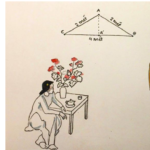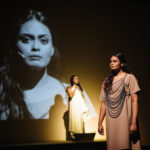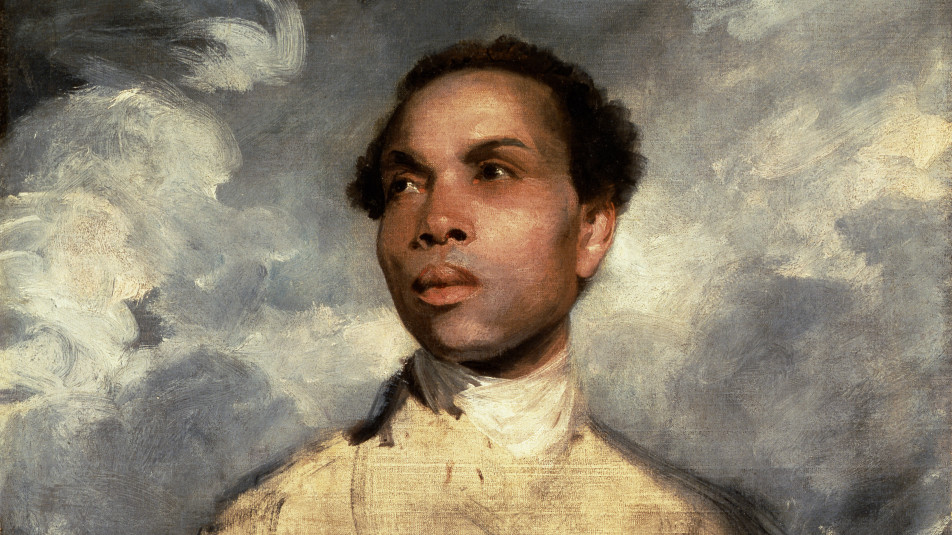Creole Portraits III
2009 - Drawing & Print (Drawing & Print)
91.44 x 60.96 cm
Joscelyn Gardner
Creole Portraits III alludes to the 18th century practice by slave women on Caribbean plantations of using tropical plants as natural abortifacients. As an act of political resistance against their exploitation as “breeders” of new slaves and to protest the inhumanity of slavery, some slave women chose to either abort or kill their offspring. Armed with practical knowledge passed on orally from their African ancestors and/or Amerindian counterparts, enslaved Creole women collected the seeds, bark, flowers, sap, and roots from various plants which allowed them to secretly put an end to their pregnancies. The lithographic portraits reveal intricately braided Afro-centric hairstyles viewed from behind entwined within the iron slave collars which were used to punish female slaves accused of inducing abortion. Each portrait also displays one of the botanical specimens used for this purpose.
Joscelyn Gardner is a Caribbean / Canadian visual artist working primarily with printmaking and multimedia installation. Her contemporary practice probes colonial material culture found in British / Caribbean archives in order to explore her identity from a postcolonial feminist perspective. Since 2000, Gardner has been living in Canada where she is a full-time Professor in the School of Art & Design at Fanshawe College in London, Ontario, and founding Chair of the artist collective, Print London.
Colors:
Related works sharing similar palette
» see more

© » KADIST
Yao Qingmei
2017Satirizing an airport security checkpoint, The Ecdysiast – Molt (Body Inspection) by Yao Qingmei offers a comedic and critical inquiry into the logics underpinning collective control and surveillance culture...

© » ART AND CAKE
Displacement, Disconnection & Disruption: Alternate Perceptions of the Diasporic Experiences – Art and Cake June 12, 2023 June 15, 2023 Author Displacement, Disconnection & Disruption: Alternate Perceptions of the Diasporic Experiences Fatemeh Burnes “Wonderland” Displacement, Disconnection & Disruption: Alternate Perceptions of the Diasporic Experiences By Betty Ann Brown We are living in dystopia, in a world that is dominated by technology and disconnect, alienation, loneliness, and dysfunction...

© » ARTS EQUATOR
Vietnam's visual arts and COVID-19 | ArtsEquator Thinking and Talking about Arts and Culture in Southeast Asia ArtsEquator Viewpoints Nguyen Duc Phuong July 30, 2020 By Quyen Hoang (2,100 words, 8-minute read) On a rainy evening towards the end of May 2020, it seemed like Saigon’s most dapper guys and modish gals all flocked to Galerie Quynh...
Related works found in the same semantic group
» see more

© » ARTS EQUATOR
"Miss British": Embodying the Post-Colonial Complaint | ArtsEquator Thinking and Talking about Arts and Culture in Southeast Asia Articles Photo courtesy of Esplanade - Theatres on the Bay April 18, 2019 By Aparna Nambiar (1440 words, six-minute read) “How has colonialism affected you?” This question flashes upon the giant screens that span the studio walls of The Esplanade Theatre Studio...

© » KADIST
Leah Gordon
2012The Caste Portraits Series by Leah Gordon investigates the practice of grading skin color from black to white, which marked the extent of racial mixing in 18th century Haiti...

© » KADIST
Helina Metaferia
2019By Way of Revolution is a series of works by Helina Metaferia that addresses the inherited histories of protest that inform contemporary social movements...


